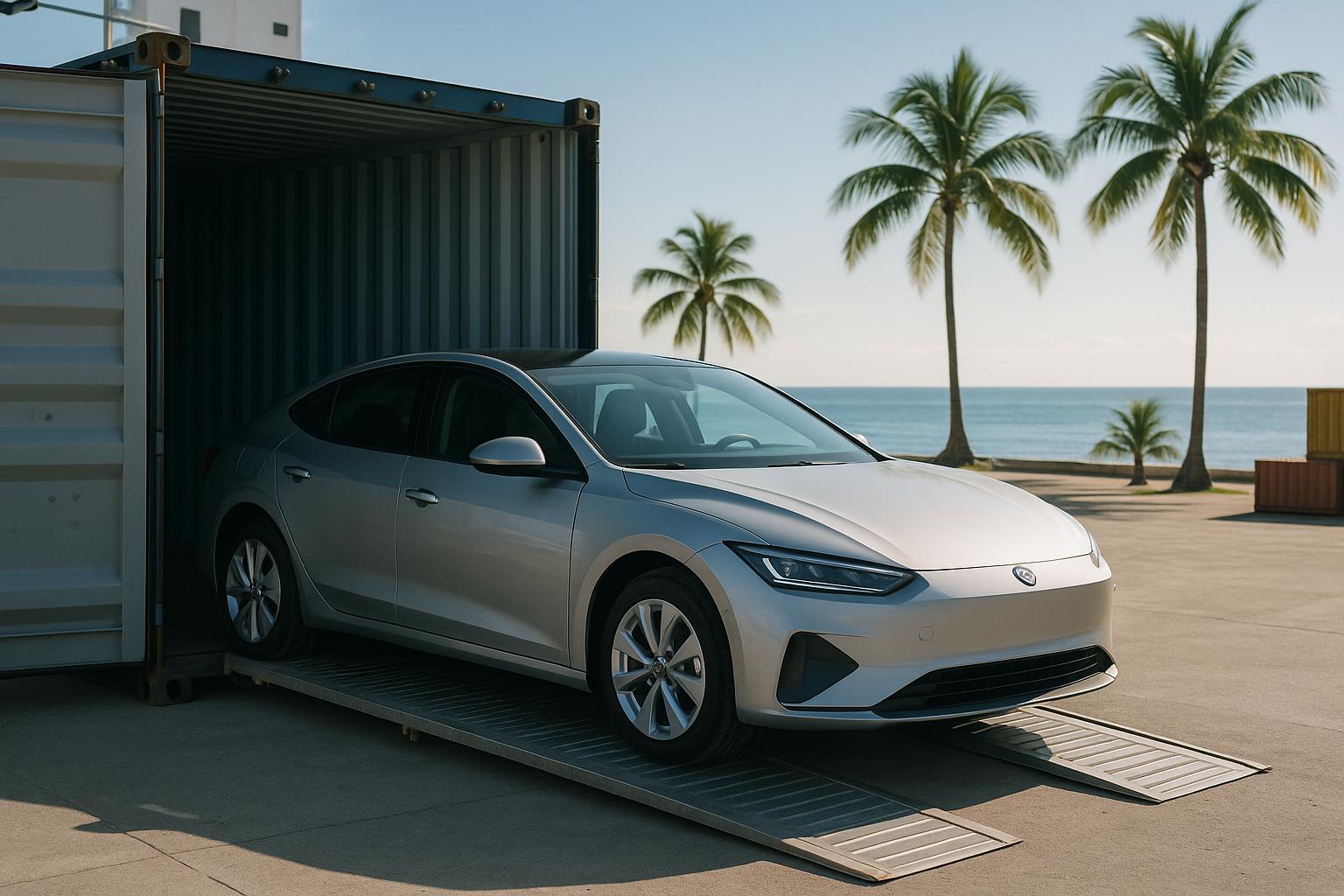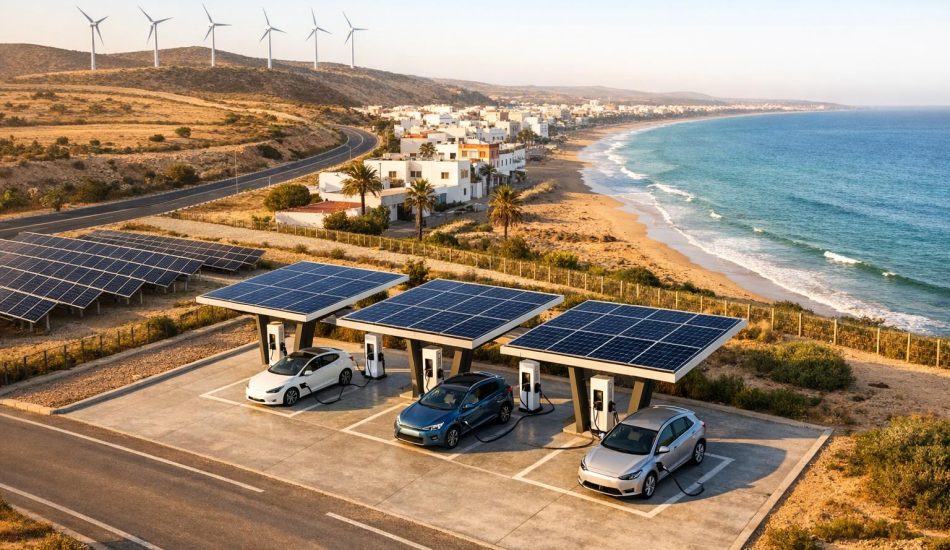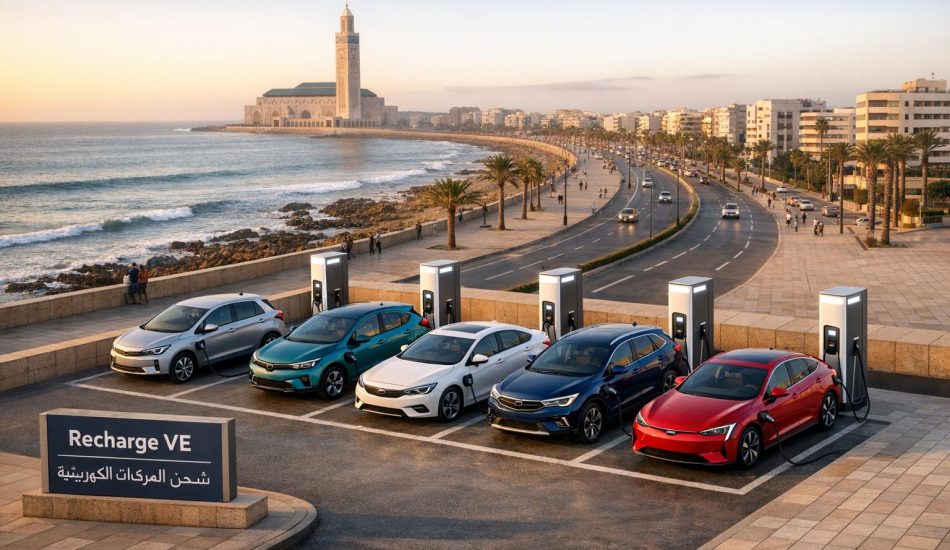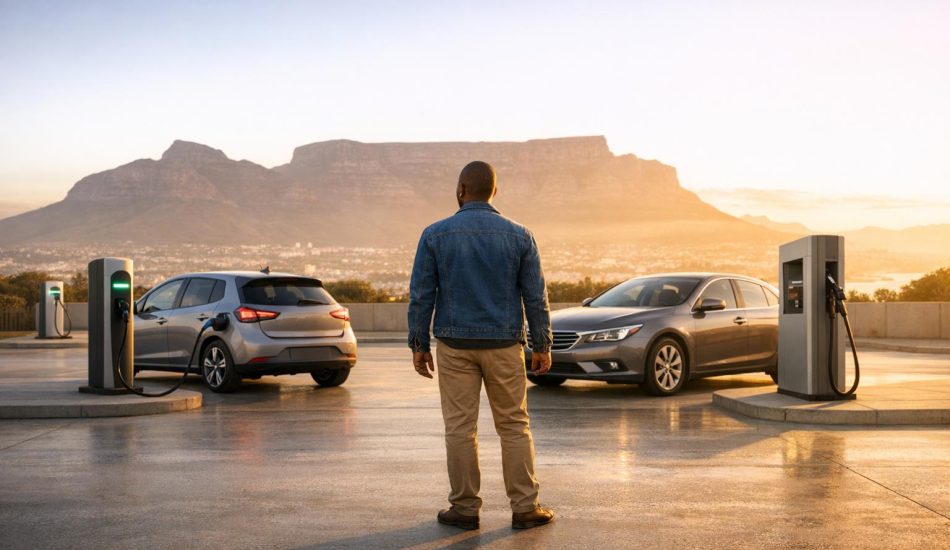
Mayotte’s 2025 EV import rules simplify the process but come with stricter documentation, updated taxes, and technical requirements. Here’s what you need to know:
- Documents Required: Commercial invoice, packing list, bill of lading, CE certificates, ownership documents, EORI number, and more.
- Vehicle Eligibility: Must meet EU standards, including safety and emissions. Age and FOB value limits apply.
- Customs Process: Identify the correct TARIC code, prepare documents, and pay duties and VAT based on the CIF value (vehicle price, shipping, and insurance).
- Taxes: Import duties vary by country of origin (e.g., Chinese EVs face tariffs up to 38.1%). VAT applies to the CIF value plus duties.
- Fees: Registration costs €30 per fiscal horsepower. Adjustments may be needed to meet local standards.
Proper preparation, accurate paperwork, and understanding of costs are key to avoiding delays and extra expenses.
How to Import Electric Vehicles: Step-by-Step Process
Bringing an electric vehicle (EV) into Mayotte requires careful attention to documentation, compliance, and customs procedures. Each step must be followed in the correct order to avoid unnecessary delays or extra costs. Here’s a breakdown of the process to help you navigate Mayotte’s strict import rules.
Required Documents for Import
Having the right paperwork is crucial to prevent customs delays. Make sure you gather the following documents:
- Commercial invoice: This outlines the vehicle’s purchase price, specifications, and seller details. Accurate information here is vital since it directly impacts tax calculations.
- Packing list: Provides detailed information about the EV’s components, accessories, and any additional parts included in the shipment.
- Bill of lading: Acts as both a shipping receipt and proof of ownership during transit.
- CE certificates: Confirms that your vehicle meets European safety and environmental standards as required by French regulations.
- Original ownership documents: Includes the title or certificate of ownership from the country of origin.
- Manufacturer warranties and technical specifications: Help customs officials verify the vehicle’s authenticity and compliance with local standards.
- EORI number: The Economic Operators Registration and Identification number is essential for identifying your business with customs authorities and streamlining the import process.
Ensuring accuracy in these documents will save you time and prevent unexpected roadblocks.
Vehicle Eligibility Requirements
Not every EV can be imported into Mayotte, as strict eligibility criteria apply. Your vehicle must meet European Union technical standards, including safety features, emissions limits, and electrical system requirements. If the EV was manufactured outside the EU, modifications or additional certifications may be required.
Age restrictions are another factor. These vary depending on the vehicle’s condition and intended use, with commercial importers often facing tighter rules than individual buyers. Additionally, the vehicle’s FOB (Free on Board) value must fall within Mayotte’s established limits. Specific technologies, as outlined in relevant decrees, must also be present to meet current safety and environmental guidelines.
Customs Clearance Steps
Once your EV is confirmed to meet eligibility requirements, you can move on to clearing customs. This stage is critical for securing approval to import your vehicle.
Start preparing for customs clearance before the vehicle arrives. Having all your documents ready in advance can minimize delays and avoid extra inspections. Here’s how to proceed:
- Identify the correct TARIC code: Use the official simulator to determine the applicable customs duties and required documentation. This code also helps calculate your total import costs.
- Work with a freight forwarder: An experienced forwarder can handle key tasks like submitting declarations, estimating duties and VAT, and communicating with customs officials.
- Submit a pre-alert: Send in your commercial invoice, packing list, CE certificates, and bill of lading to expedite the review process.
Be ready for customs checks, which may include both document reviews and physical inspections. After the review, calculate and pay the necessary VAT and customs duties. Once payment is complete, customs will issue a release authorization, allowing you to take possession of your EV.
For shipments with proper documentation, the customs process typically takes 3 to 7 business days. However, more complex cases or additional inspections could extend this timeline. Stay in close contact with your freight forwarder to ensure everything stays on track.
Taxes and Fees for EV Imports in Mayotte
Importing an electric vehicle (EV) into Mayotte comes with specific taxes and fees that can significantly affect your overall costs. As a French overseas territory, Mayotte adheres to French customs regulations for determining these charges. Here’s a breakdown of what you need to know.
Import Taxes and Fees to Consider
When bringing an EV into Mayotte, you’ll encounter several mandatory charges. Import duties are calculated using the CIF (Cost, Insurance, and Freight) method. This means the tax is applied to the combined total of the vehicle’s purchase price, shipping costs, and insurance. Essentially, the entire cost of acquiring and transporting the vehicle is taxable.
On top of that, Value Added Tax (VAT) is applied to the CIF value plus the import duties. You might also need to budget for customs broker fees if you hire professionals to manage the documentation and clearance process.
Once your EV clears customs, you’ll need to pay registration fees to receive local plates. In Mayotte, the registration tax is based on the vehicle’s "cheval fiscal" (fiscal horsepower), calculated at €30 per unit. The exact rate depends on the engine specifications and CO₂ emissions of your EV.
Additionally, you may face inspection and certification fees if your EV requires adjustments to meet local technical standards or if extra documentation is needed to confirm compliance with European safety regulations.
How These Taxes Are Calculated
The first step is determining the taxable CIF value of your EV. This involves summing up the vehicle’s purchase price, international shipping costs, and insurance premiums. This total forms the basis for calculating import duties.
Next, multiply the CIF value by the duty percentage assigned to your EV. Duty rates vary by vehicle type and country of origin. For instance, the European Commission has imposed tariffs on Chinese-made EVs, with rates as high as 38.1%. Specific examples include:
These tariffs are in addition to a standard 10% base duty.
Let’s break it down with an example:
If you’re importing an EV priced at $45,000 with $3,500 in shipping and insurance costs, the CIF value would total $48,500. Assuming a 15% duty rate, import duties would amount to $7,275. VAT is then calculated on the combined total of $55,775, further increasing your costs. As you can see, precise calculations are crucial to avoid unexpected expenses or delays at customs.
To calculate import duties for your EV, multiply the taxable CIF value by the applicable duty and tax percentages for Mayotte.
Keep in mind that currency exchange rates can influence these calculations if the vehicle’s purchase price is in a currency other than the euro. Customs will use the exchange rate in effect at the time of clearance to finalize the taxable value.
Limited Tax Exemptions
Tax exemptions for EVs in Mayotte are scarce. While some regions in France previously offered reduced registration fees for EVs, most of these incentives ended in 2025. In Mayotte, the standard registration fee of €30 per fiscal horsepower applies, regardless of whether the vehicle is electric or not.
Planning Ahead
Proper preparation is essential to avoid unexpected costs. Research the current duty rates for your EV model and its country of origin before making a purchase. Keep in mind that tariff policies, particularly those targeting Chinese-manufactured EVs, may change over time.
Declaring a lower value to reduce taxes is considered tax evasion and is illegal.
For a smooth import process, consider working with experienced customs brokers. They can help ensure your calculations are accurate and that all requirements are met before proceeding with inspections and certifications.
*Note: Registration fees are provided in euros. Check current exchange rates for an approximate conversion to U.S. dollars.
Technical Standards and Inspections for Imported EVs
Importing an electric vehicle (EV) into Mayotte comes with its own set of technical considerations. As a French overseas territory, Mayotte may follow French and broader European safety and environmental standards. However, specific requirements remain unclear, so staying informed is essential.
Required Certificates and Inspections
Currently, there isn’t a clear, detailed list of mandatory certificates or inspection procedures for imported EVs. Importers should anticipate a technical review to confirm the vehicle meets basic safety and performance standards. With regulations still taking shape, it’s wise to monitor updates from local authorities as the 2025 rules approach.
International Standards Mayotte Accepts
There’s no official confirmation on which international certifications Mayotte recognizes for EV imports. To avoid complications, check with local agencies to determine if your vehicle’s certifications align with the upcoming requirements.
Adjusting Your EV to Meet Local Rules
As technical standards evolve, some adjustments to your EV might be necessary. This could involve updating documentation or making changes to labeling to meet local regulations. Consulting with import professionals who are familiar with Mayotte’s guidelines can help simplify this process.
With the 2025 regulations on the horizon, maintaining regular communication with local authorities and industry experts will be crucial for navigating the import process smoothly.
sbb-itb-99e19e3
Common Mistakes and How to Avoid Them
Importing an EV to Mayotte isn’t always straightforward. Even small missteps can lead to delays, unexpected fees, or other headaches. Knowing where things commonly go wrong can save you time, money, and frustration. Let’s dive into the most frequent mistakes and how to avoid them.
Paperwork Errors That Slow Things Down
One of the biggest culprits behind import delays is incomplete or inaccurate paperwork. Missing documents or incorrect details can result in extra fees, fines, or long hold-ups at customs. To avoid this, make sure you have a complete pre-alert with every required document listed in the "Required Documents for Import" section. Double-check that all your paperwork is accurate and consistent.
For example, customs officials will scrutinize your documents for inconsistencies in your EV’s specifications, value, or origin. Even minor errors can raise red flags. Additionally, use tools like the official TARIC simulator to ensure your vehicle is classified correctly and that duty calculations are accurate. Don’t forget to verify all essential registrations, such as your EORI number, to avoid unnecessary complications.
Staying Compliant with Rules and Regulations
Beyond paperwork, compliance with technical and financial regulations is just as critical. Non-compliance can lead to customs blockages or unexpected fees. Before shipping, confirm that your EV meets European technical standards. It’s also wise to calculate and prepay VAT and import duties to avoid surprise costs that could delay clearance.
Keeping up with regulatory changes is equally important. Customs rules can shift, so regularly check official updates to stay informed. To prevent system-related issues, ensure your documentation aligns with customs requirements. Using approved software or service portals can help streamline automated processes and reduce errors.
Another effective strategy? Regular staff training. Keeping your team up to speed on data accuracy and the latest regulations can minimize human errors that might otherwise trigger extra scrutiny from customs.
Why Professional Help Can Make a Difference
Even with careful preparation, importing an EV can be daunting. That’s where professional help comes in. Working with experienced customs brokers or import specialists can save you from costly mistakes. These professionals understand the complexities of Mayotte’s customs process and can guide you through it more efficiently.
For instance, services like EV24.africa’s import assistance are tailored to Mayotte’s unique requirements. They can help you navigate technical compliance issues, ensure your paperwork is in order, and speed up the overall process. Customs brokers also know how to present your documents in a way that minimizes delays and avoids unnecessary fees.
Collaboration is key, too. Clear communication between shipping companies, customs brokers, and local authorities can prevent misunderstandings and compliance issues. While hiring professional help may seem like an added expense, it often pays for itself by avoiding delays, penalties, and extra costs – especially if you’re importing multiple vehicles or are new to international customs procedures.
Conclusion
Bringing an EV to Mayotte in 2025 requires careful planning and attention to detail. With the introduction of Circular No. 54/2024/TT-BGTVT, effective January 1, 2025, new regulations have added layers of complexity to the process, making thorough preparation essential.
Success in this endeavor depends on assembling the right documentation, ensuring your EV complies with all technical standards, and calculating taxes with precision. Gathering the necessary paperwork and verifying that your vehicle meets Mayotte’s customs and technical requirements are critical first steps.
Tax calculations are another key element. Accurately estimating duties, VAT, and other fees in advance can help you avoid unexpected expenses, reduce the risk of delays, and plan your budget effectively. Staying informed about Mayotte’s changing regulations will also save you from potential setbacks. Regularly reviewing official updates, subscribing to newsletters, or consulting customs professionals can help you stay ahead of any changes.
Whether you decide to handle the process independently or enlist expert help, careful preparation is the foundation of a smooth and cost-efficient import experience. By addressing all requirements upfront, you can avoid unnecessary delays, extra costs, and logistical headaches.
FAQs
What changes might be required for an electric vehicle made outside the EU to meet Mayotte’s 2025 import standards?
Electric vehicles (EVs) produced outside the European Union might require some tweaks to meet Mayotte’s import rules set for 2025. These changes often involve aligning the vehicles with local safety and technical standards, adjusting charging connectors to fit the region’s infrastructure, and updating software to meet local requirements.
Since the exact modifications can differ, it’s wise to review Mayotte’s detailed import guidelines or consult a local authority to ensure your EV complies with all necessary regulations.
How do currency exchange rates affect the cost of importing an EV to Mayotte, and how can I prepare for this?
Currency exchange rates play a key role in determining the total cost of importing an EV. Even minor fluctuations in these rates can affect how much you end up paying in USD, as the final price is often tied to the exchange rate at the time of payment.
To stay ahead, it’s wise to keep an eye on exchange rate trends and factor in potential changes when budgeting. You might also want to explore ways to reduce risk, such as locking in exchange rates through your bank or using a forward contract. Setting aside a contingency budget can provide an extra cushion for any unexpected shifts in currency value.
What happens if I submit incorrect documents when importing an EV to Mayotte?
Submitting the wrong documents – or failing to provide complete ones – when importing an EV into Mayotte can lead to some pretty steep consequences. Think vehicle confiscation, fines reaching up to $345, and other administrative headaches. On top of that, mistakes in your paperwork can mean long delays, extra costs, or even having your import application denied altogether.
To steer clear of these problems, make sure your documents are accurate, fully completed, and meet Mayotte’s import regulations for 2025. Taking the time to double-check everything upfront can save you from unnecessary stress, wasted money, and delays down the road.




